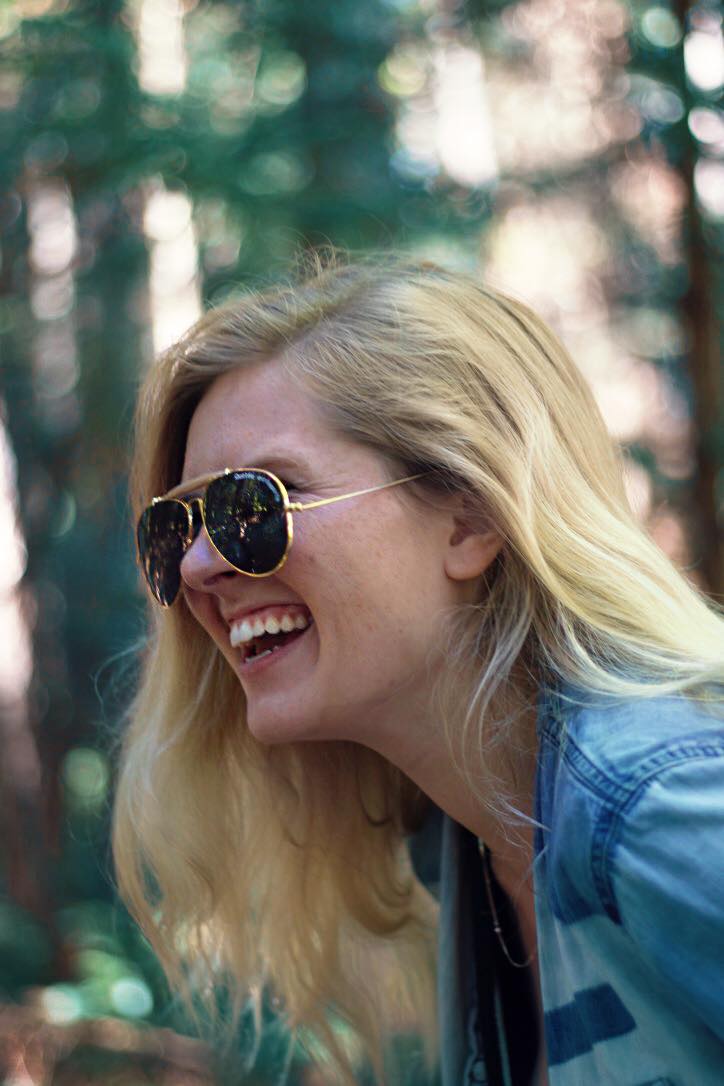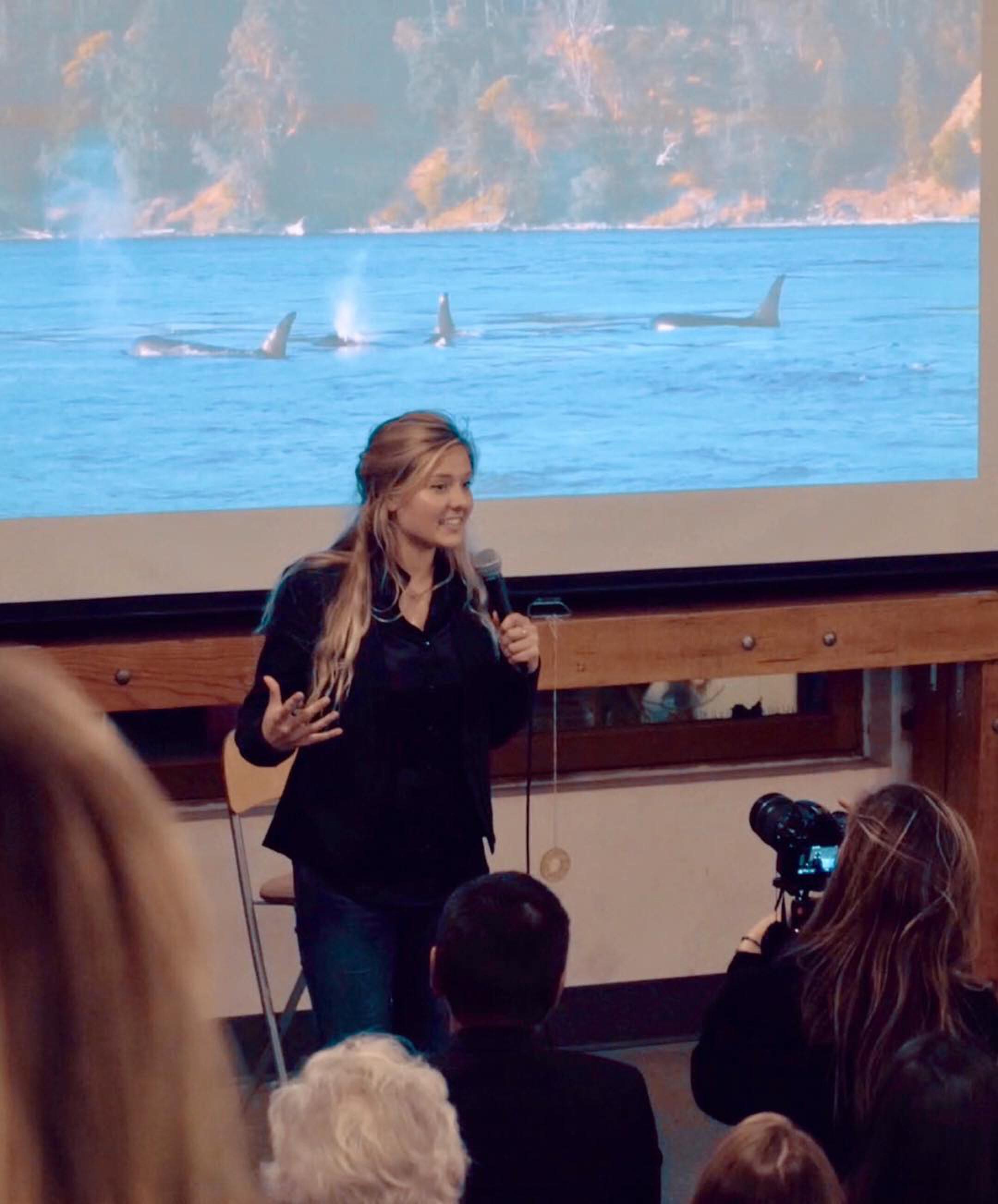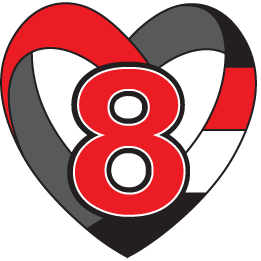
Elena's Journey to Finding Balance

This is Elena's Story
*Trigger warning: Talk of self-harm and suicide.*
Hey! My name is Elena, and my friends call me El.

I’m a filmmaker, writer, and brand builder, amongst many other things. I currently live in the small coastal town of Tofino, Canada, where I’m working on a wildlife documentary series (Coextinction) and learning to surf.
My life is guided by my passions. In the past year, I’ve found health, happiness and discovered a strong sense of purpose. Things in my life aren’t perfect, but things are good. This is due in large part to the fact that I am in a good place with my mental health.
But, it wasn’t always this way. I really struggled throughout my life with mental health issues. It began in high school, with trips to the psychiatrist and a lot of things not making sense. And then, during my university years, things became very difficult for me.
In my life, I’ve experienced depression, severe anxiety, panic attacks, addiction, an eating disorder, and a lot of unnecessary stress. If you’ve ever experienced any of this, I hope my story will help you in your journey towards better mental health. Because, mental health is everything. You cannot have a healthy body, or a healthy life, if you are not mentally healthy.
In this piece, I’m going to give you a summary of my personal journey followed by a description of the things that work for me. What took me more than half a decade to figure out, I’m going to share with you here in these paragraphs.
Please keep in mind that reading this won’t solve your problems. It’s what happens after you read this that matters. It’s entirely up to you to take what you read here and apply it to your life, and not just today, but enough days to see a shift.
To preface this, I have never written a more comprehensive review of my mental health challenges. If you know me personally and are reading this, there are some things in this piece that may shock and surprise you. If you don’t know me personally, pretend that you do, because it is likely that someone close to you is experiencing this anyways (if that person isn’t you).
I hope you find this piece helpful, and that it makes you feel less alone with, and more equipped for, whatever you may be facing in your life.
Alright, here it is, my story:
I’ve always thought that maybe I had bipolar disorder. My grandma was probably bipolar, and I’ve always had significant mood swings. They were significant enough to land me in the psychiatrist’s office in high school. But those trips never amounted to anything. It wasn’t until much later that I learned what the root cause of these mood swings was. I’ll get to that; but first, university.
Like a lot of 18 year olds, I didn’t know what I wanted to do. I had a lot of ideas, some excitement around possible pathways, and good enough grades to get me into university. At the time, I had my reasons for picking engineering, but those reasons ultimately didn’t withstand my undergrad.
My undergrad presented me with many distractions to partake in. I was involved in various clubs, partying most days of the week, and meeting many new people. By the time I realized that I didn’t like what I was studying, I was in my third year of university. And at that time, I figured it was too late to turn back. So, I continued with my degree, pushing through my dislike of the curriculum.
In my first year of university, to combat the pressure from school, I would stress eat with the all-you-can-eat cafeteria food. Tie this in with excessive binge drinking from all the partying I was doing, and I started to pack on the freshman pounds. For someone who had always been health conscious, this change in my physiology shocked me. I rejected it. But I couldn’t stop the stress eating or the binge drinking, so instead, I threw up the excess. It worked very well, until it got out of hand. And as anyone who has suffered from bulimia knows, this is how it all begins. I was hooked on an addiction to the escape that this new system provided me.

The binge drinking, binge eating, and eating disorder continued into my second year of school. In addition, I was exploring the hookup scene, which also became a sort of escape and addiction for me. The vicious cycle had begun, but I couldn’t see it. All I knew was that I was unhappy - I was beginning to feel very depressed and unstable. I would often stay up late into the night and cry, confused. And I consistently felt like I was wasting my potential. And I began to hate myself for it, and so through all of this, I didn’t tell anyone. I reduced the problem – I metaphorically swept the dirt under the rug. And this was the beginning of the unravelling.
In my second year, I also began to experiment with drugs. I started using classic party drugs – energy drinks, speed, cocaine and MDMA. I took a liking to MDMA, and I began to use it frequently, almost every weekend. One weekend, my friends and I went to a festival where we took a lot of MDMA – a dangerous amount. My life changed drastically after that. It wasn’t immediate, but the shift began the week following the festival. I had my first panic attack.
I had never experienced anxiety before this. There is a difference between feeling “anxious” as most of the population knows it, and feeling “anxious” as those who have a disorder know it. Anxiety is not stress. Anxiety is a physiological response to a psychological belief of immediate danger. Your body starts to tingle, then your face becomes flushed, and your heart starts beating uncontrollably fast. My first panic attack left me on the ground outside of the hospital – I didn’t make it to the ER - where I lay crying and believing I was going to die. It was terrifying – the worst feeling I had ever experienced. And it was the first of many panic attacks to come.
The panic attacks continued through my second year and into my third year. I also started to feel chronic anxiety. I would have difficulty doing just about anything – talking to people, finding silence, and focusing on my work. This was very unlike me, and made me very worried about who I was becoming. This added stress stoked the fire of the addictions I was cultivating – alcoholism, binge-eating and bulimia.
But, on the outside, I seemed fine. I’m sure anyone reading this who went to school with me would be surprised to know some of these things. I am, and have always been, high energy, outwardly positive and social. I think that’s what most people knew me as in school. Not as someone who was struggling.
In reality, I hated my degree program and I was just scraping by. And all the while, I thought I would be okay, that it just required more perseverance and discipline. So, I pushed on, dragging the weight of my mental health problems behind me.
In my third and fourth year, I found two new forms of escape: an unhealthy romantic relationship and social media. Both addictions - like alcohol, food and bulimia - would provide me with immediate relief from my painful reality, but would hurt even more in the aftermath.
Near the end of my undergrad, I failed one key course and I had to take a fifth year of school to finish. This is when all my mental health issues climaxed. But again, from the outside, people probably didn’t know what was going on. All they would have seen is someone struggling with school. I was somehow managing to upkeep a small business on the side, networking with investors, maintaining a few friendships, and staying involved in some things I enjoyed. But, all these positive things were incredibly fragile, because of my mental health. What people didn’t see was that I was battling with myself. And they didn’t see it because I was ashamed of it.
My fifth year of school is when depression really took hold. I would spend days in my bedroom, leaving only on occasion to eat, and sometimes only to binge and purge. I would sleep anywhere from 14 to 24 hours a day, leaving my mind in an ever-groggy state. And my bedroom was a disaster, just like my life. I wouldn’t attend class unless absolutely necessary, I was still scraping by, paying thousands of dollars for a degree I didn’t even want. I became suicidal, and a few times I even cut myself to release some of the tension. Luckily, this didn’t become an addiction for me as well, but I know for many this is how it begins.
That was the lowest point in my life. Reading those words now, it’s hard for me to believe that I could do that to myself. But as you know, it was a progression over the years that led me to that incredibly depressing scene.
During my final exams, I cracked. I didn’t write a single exam. Instead, I slept and cried. I left school knowing I would never go back to finish my degree.
That is where poor mental health led me to. The lowest point in my life was the result of not taking my mental health seriously. Taking it seriously would have meant pausing my studies and my commitments to address the most important thing in my life: me.
So, how did I get from there to where I am today? Today, I am happy, healthy, doing what I love and constantly improving. It’s been a couple years since I left school, and a lot has shifted. I’ve done a lot of work and I’ve been lucky.
I got lucky when my boyfriend at the time introduced me to some personal development programs. These, in tandem with being able to live for free with him and with the support of my parents, gave me the space I needed to begin my journey to better mental health.
This journey has not been easy, mainly because it has not been visible until more recently. While working to improve my mental health, I wasn’t seeing immediate results. But that’s the key!
The key to anyone’s success at anything in life, is the ability to see beyond immediate gratification. To become a great athlete, you must train hard every day. To become a great artist, you must paint many paintings. And to become mentally healthy, you must do mentally healthy things every day. It’s like brushing your teeth, you must do it every day even though you don’t see immediate results.
When I began my journey back to health, I didn’t know it at the time but I was persevering in the way I needed to become mentally healthy. At the time, I just knew that giving up wasn’t an option. There were many, many days where I had anxiety attacks, break downs, and suicidal thoughts. There were many days where I still binged and purged and fell into the trap of addiction. But each day presented new opportunity, and I took hope in that.
I was lucky because even though I was not financially or emotionally stable, the people around me were and could support me. This is the first thing that someone wanting to become mentally healthy needs to do – find stability in their environment. It is of the utmost importance that if you want to improve your mental health, you improve your environment. This can be done in many ways – you can live with your parents or boyfriend/girlfriend (if your relationship is healthy), you can get a job to cover your basic expenses, or you can enter a rehabilitation program. This can also be accomplished in small ways, such as cleaning your bedroom.
Once you have a stable environment, from there you can work on your internal world. The internal world is much more complex than the external one. Your mind has many hidden layers, trap doors, old habits and stories. Exploring the way your mind works on a biological level, as well as on spiritual and emotional levels, can give you the tools you need to recreate your reality. Because ultimately, that is the end game, to recreate your reality in a way that you can be happier, healthier and more productive.
There are many, many things that I learned about how the mind works and how to work with it rather than against it. Too many things for me to recount here. But I will list three of my greatest, most fundamental lessons.
 Here are three of my most important lessons:
Here are three of my most important lessons:
First…
- Your mind is made up of loops.
Functionally, your mind is made up of neural pathways that transmit information around the brain. The way that the mind, and, in fact, a computer chip, works, is through learned loops. It would be very difficult for the mind to have to relearn how to do everything every day. For example, from a young age you learn how to put one foot in front of the other while you stand up – it’s called walking. Walking is available to us because our neural networks have memorized how to do it. It’s a deeply engrained habit in our system.
We live 80-90% of our lives based on habit loops. They take shape in the form of activities like walking, brushing your teeth and making coffee. And they also take shape in the form of thought patterns, such as this:
“That alley way is dark -> dark alleyways are dangerous -> don’t walk there.”
Do you see how “that alley way is dark” quickly becomes “don’t walk there”? That thought pattern is automatic for many people. It’s automatic for a reason – to keep you safe, sooner. It would simply take too long to try and deduce the meaning of everything in our lives. This automatic way of thinking is very useful in many situations, where it is not helpful is when it leads us to make poor judgement calls. For example, when you think this:
“My pants don’t fit well today -> I look bad today -> I am ugly -> I am not worthy of love.”
In an instant, you’ve entered a “negative thought loop”. Unfortunately, sometime in your life, you learned that the outcome of your pants not fitting well, is that you “are not worthy of love.”
Where these thought loops can really go wrong, is when they trigger a whole series of other negative thought loops. Let’s use the previous example and continue it.
“My pants don’t fit well today -> I look bad today -> I am ugly -> I am not worthy of love.”
Which triggers:
“I am not worthy of love → No one will ever love me → My life doesn’t matter → I hate myself → I want to die”
You can see how something as trivial as seeing that your pants don’t fit well today, can lead to wanting to kill yourself. The problem with this, of course, is that one day you might. That is the power of negative thought loops that have run astray.
What I learned to do, is to interrupt negative thought loops. Ones like the example above, that would lead me to a place I knew I didn’t want to go. I would interrupt them by either just cutting them off in my mind, or by replacing them with something more positive.
For example, I would notice that I was beginning to feel bad because of some negative thought loops I had running in my mind. As soon as I realized this, I would change what I was doing. I would either put on some music, go for a run, make some tea, or just do anything positive to interrupt the habit.
Alright, here’s the second lesson.
- You must learn to “let go” and “lean in”.
This is a very powerful concept that has drastically improved my mental health, the quality of my life and my productivity.
We all experience stress. Stress can be anywhere from aggravating to overwhelming. It can also manifest as anxiety, burnout and depression, amongst many other things. Stress is usually triggered by a “worry thought loop” - when you find yourself worrying about something random, which spirals into a bombardment of worrisome thoughts about your life.
I learned to combat stress by first recognizing it, and then by “letting go”. Letting go is a powerful concept where you “let go” of whatever tension you’re holding onto in the body, spirit or the mind. When you let go in the body, you relax your shoulders, steady your breathing, and release the tension in all your muscles. When you “let go” in the spirit, you let go of any self-doubt you’re experiencing and of any distrust of the moment you’re experiencing. And lastly, when you “let go” in the mind, you let go of thoughts you’re ruminating on, and instead just observe them as they appear and let them pass.
Once you have fully “let go”, you will feel a lightness in your being that is radically different from the feeling of stress that you were experiencing. And incredibly, this transformation can happen in less than a minute.
One way to practice this process is through meditation. There are many kinds of meditation, but what matters is simply to find one that works for you. I personally like to use a specific, guided, “letting go” meditation that lasts about 12 minutes.
After “letting go”, you are ready to “lean in”. Leaning in is the opposite of letting go, where you apply your attention on leaning in with your body, spirit and mind. And now that you have let go of the things that you didn’t want to be focusing on, you can lean into what you do want to focus on.
For example, if you are stressing out and procrastinating doing your work, you can practice “letting go”. Then, once you have let go, you will no longer feel the urge to procrastinate (since it is just an escape from the discomfort of what you were previously holding onto). Now, you can focus on “leaning in” to your work.
The process of leaning in is the same as letting go. One by one, you focus on each aspect of the being. You “lean in” with your body, which may take shape as sitting up taller, breathing deeper, and smiling. You “lean in” with your spirit, which might be by trusting your instinct, believing in yourself and trusting in the present moment. And then you “lean in” with your mind, which could mean focusing your attention on what you’re writing, a race you’re running, or your work.
This “let go” and “lean in” process works every time. But it only works if you commit to it. Sometimes it takes much longer to let go and lean in, other times it will take less than a minute. It is important to be patient and to persevere. You can get through anything, and this tool is at your disposal no matter what challenge you are currently facing.
Alright, the last point! And wow, I am writing more than I thought I would. I hope you’re finding it helpful.
- Remember that everyone’s mind is different, and that’s okay, in fact it’s great!
I learned about a year ago, that I have ADHD. At first, this discovery brought massive relief to me! I finally had the answer as to why I had been so moody, impulsive and high energy throughout my life. But it also brought the challenge of realizing that I truly was different. But, we are all, truly different.
Your mind is different than mine, it’s better, in many ways. And in turn, my mind is better in many ways than yours. We are all given gifts. It is up to us to discover what those natural gifts are, and to leverage them to our advantage. If you’re naturally great at math, which I’m not, you can excel in mathematics. This is a skill that you can use to your advantage throughout your career and into your personal life (when it comes to managing your finances, for example).
And of course, with your strengths, come weaknesses. If you are not naturally adept at something, it doesn’t mean that you can never be good at it, and it definitely doesn’t mean that you aren’t “good enough”. Understanding how you work comes with the requirement that you accept yourself. Remember though that acceptance is different than complacency.
Take the time to figure out what you’re naturally good at and what you enjoy doing. From there, address the things you’re not great at. Learn to accept all of you. Then with this greater understanding of yourself, you can make better decisions about how you use your time and where to apply yourself.
For example, knowing that I’m ADHD, I can leverage my creative strengths to my career advantage. I also know that for any administrative and accounting work I need to do, I should probably seek support. It’s not that I can’t do administrative or accounting work, it’s that I am better off focusing on my strengths because I’ll be happier and more productive that way.
This may seem like an obvious lesson – know and accept yourself. But it is fundamental to your mental health.
If I had known this lesson earlier, the whole mental health mess I got myself into may have never happened. Why? Because I would not have chosen to continue my studies after I discovered they weren’t for me. My studies simply didn’t align with what I’m good at and what I enjoy doing. And so, I was putting myself through significant unnecessary strain in doing them.
I know myself better now, and so I can make better choices about what I do, where I am, and who I spend my time with. Choices that I know will make me happy. That way, I don’t have to manage the urge to escape from my own life.
Take the time to discover what you’re good at, what you enjoy, and how your unique mind likes to work. And then with that knowledge, make decisions that suit YOU best. You’ll be all the happier for it.
Well, that’s it for this piece. If you’re still with me, thank you for taking the time to read my story, and to learn more about how you can improve your mental health. If we were all a little more mentally healthy, the world would be a better place. It’s important for you, for your community, and for the world, that you develop good mental health.
It won’t be easy, but if I managed to survive and figure all this out, you can too.
El xx
P.S. If there’s one last piece of advice I can give, it is this: Exercise every day without exception, and begin a gratitude journal (which you do preferably in the morning). Good luck!
Note from Cam's Kids: If you want to learn more about Elena's current wildlife initiatives, check out https://www.coextinctionfilm.com/ or follow @coextinctionfilm on Instagram and @coextinction on Facebook.


Don't see what you're looking for? Send us an email!
©Copyright 2024 Cam’s Kids powered by Kids Help Phone
Not-for-Profit Organization. B/N: 921508-5
Thanks for visiting Cam's Kids. Please remember...
Cam's Kids is not a service provider.
If you are in crisis, please call 911 or go to your nearest emergency department. For free, confidential counselling, contact Good2Talk or Kids Help Phone.
Post-secondary students: find your local crisis resource here.





